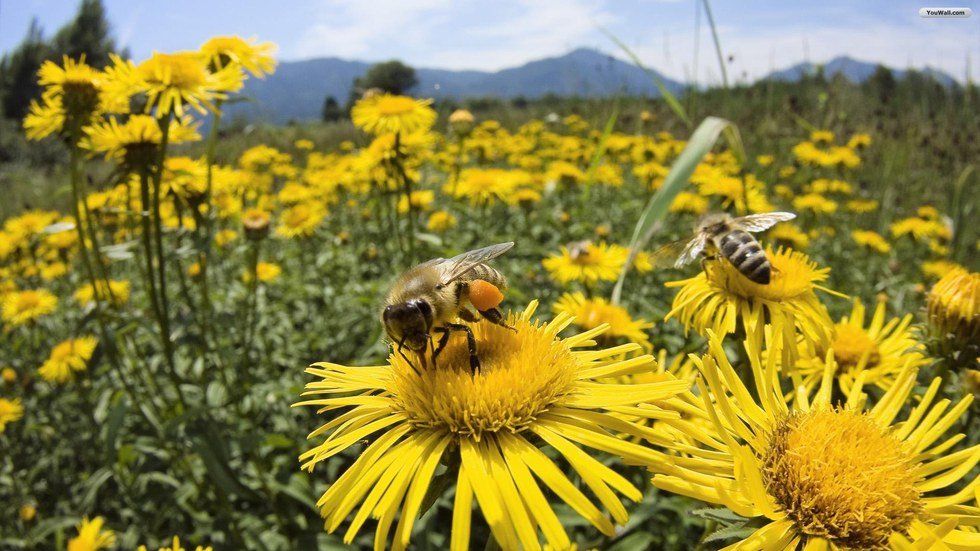While it’s nice, nowadays, to lounge in the summer sun with an array of food by your side, and not have to constantly look out for bees, it is also quite disconcerting. So where exactly have all the bees gone? What is making them disappear at such an alarming rate? How can we help? Well, researchers Ben A. Woodcock, Nicholas J. B. Isaac, and several others may have just cracked the code.
On August 16, these scientists published a study on the decline of wild bees in the journal Nature Communications. Many studies done on this decline provide little information, being as they are usually preformed in a shorter span, covering only a small period of time. However, this newly published study has been 18 years in the making, starting long before the use of many of today’s most popular insecticides and other chemicals! Their hard work, dedication and patience was just the solution for discovering a major factor in the bees’ departure.
Neonicotiniod Insecticides: An umbrella term for some of the world’s most widely used insecticides today including clothianidin, imidacloprid, and nitenpyram, many of which are found in most off-the-shelf insecticides. Their most common use would be on rapeseed, a plant often manufactured into canola oil. These chemicals, once praised for their low toxicity, have, over the years, been speculated as harmful towards bees -- a theory recently proven through the scientists' nearly two-decade long study.
The process, originated in 1998, closely followed the rise in neonicotiniod in correlation with the decline of wild bees, mainly in the UK. What scientists found was enlightening, to say the least. While some species were attracted to the rapeseed’s enticing yellow hue, others were not. So as expected, those who favored the rapeseed saw a decrease in their species, while those who weren’t in favor saw less disappearance in their particular species. However, with neonicotiniod now making up 80 percent of the worldwide insecticide seed treatment market, it is becoming increasingly difficult for bees to avoid the harmful chemical.
With this information, the team was able to unveil that one-fifth of the wild bee population decline was due to this harmful chemical. Now, I know what you’re thinking: “Only one fifth? What else could be out there?” Well, while studying the effects of this harmful insecticide, they discovered that the other four-fifths making up the entire reason for the decline of these creatures were in thanks to climate change, parasites, disease and a change in how the land is used.
Finally, the gnawing question is answered: what can be done to help the bees? Well, while we now have proof that neonicotiniod is extremely harmful to our buzzing buddies, we cannot simply quit it cold turkey. Head of research, Ben Woodcock, stated, “It needs to be taken in a very holistic perspective, you can’t just say ‘as long as we can save the bees everything else can go to hell.” So what is there to do on our end?
Supporting local farms who claim not to be using the harmful insecticide can always help. When you’re not out produce shopping, try aiding in the other four-fifths. Protecting the ecosystem in turn protects the bees inside it; you can start by taking small steps to become increasingly friendly towards the environment. Hanging clothes to dry, using less harsh chemicals at home, or even eating less meat are great ways to get going. On top of that, planting plants that benefit bees such as asters, snapdragons or wild lilacs can surely improve the bee's chance of survival. Though it can be frustrating when there isn’t one simple solution, through taking small steps together, we can save the bees.




















